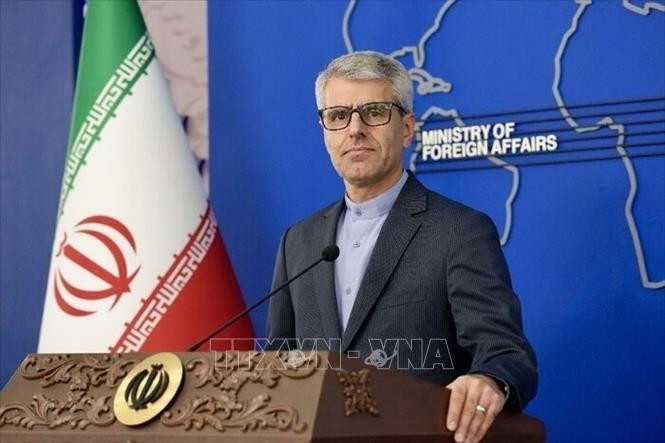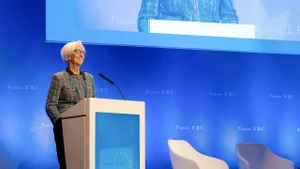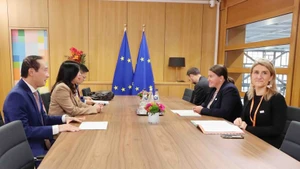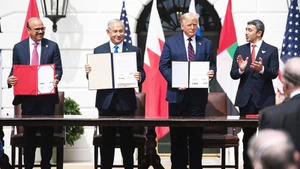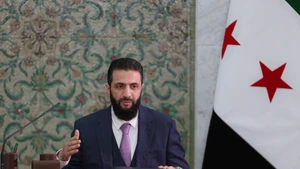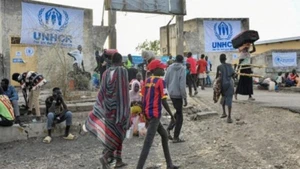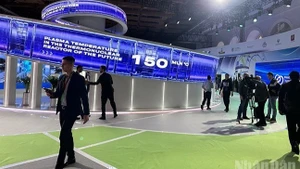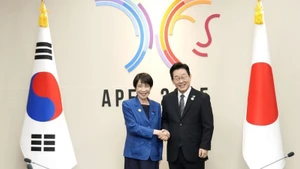However, before the fourth round of dialogue, Omani Foreign Minister Hamood Albusaidi announced that, due to logistical reasons, intermediaries were working to reschedule the US–Iran meeting originally set for May 3. A new date will be confirmed once both parties reach a consensus.
Following the announcement by Oman and Iran to postpone the next round of talks, US President Donald Trump declared a full ban on the purchase of Iranian oil and petrochemical products. He also warned of secondary sanctions on any partner violating the ban, including a complete prohibition on trade with the US.
At the same time, US Defence Secretary Pete Hegseth warned that Iran would face consequences for supporting the Houthis in Yemen—a group responsible for attacking vessels in the Red Sea and currently being targeted in US military operations since mid-March.
In response, Iran’s Foreign Ministry strongly condemned the new sanctions by President Trump targeting Iranian oil customers, arguing that Washington’s simultaneous pursuit of sanctions and diplomacy reflected Tehran’s “legitimate distrust” of US intentions.
Some Iranian officials warned that maintaining sanctions during ongoing negotiations will not help narrow differences over its nuclear program.
These developments have heightened tensions between Washington and Tehran, casting a shadow over the negotiation process. Analysts believe in the context of the fourth round of indirect negotiations between the US and Iran being postponed due to logistical and technical reasons, this is a continuation of the “maximum pressure campaign” established by the US in February to paralyse the Iranian economy by cutting off oil revenue, even as negotiations are underway.
President Trump’s latest move has sent mixed signals, undermining diplomatic efforts. Since the US unilaterally withdrew from the Joint Comprehensive Plan of Action (JCPOA) in 2018, Iran’s oil sector has faced increasingly severe sanctions.
Despite this, the Islamic Republic has demonstrated notable resilience, with crude oil exports averaging around 1 million barrels per day in 2022 and rising to over 1.5 million barrels per day in 2024, its highest level in five years.
In the face of mounting US pressure, Iran has maintained its commitment to negotiations while firmly reiterating its non-negotiable positions — namely, the right to enrich uranium domestically and the effective lifting of Western sanctions.
According to the Iranian Foreign Ministry’s spokesperson Esmaeil Baghaei, the details of any negotiations must adhere to a jointly agreed framework. No deal, he emphasised, would be reached unless Iran’s desired framework is fully considered.
Baghaei also stressed that technical consultations would happen in parallel with each stage of the negotiations. The effective lifting of sanctions and access to Iran’s frozen assets remain serious demands from Tehran in any agreement.
While the goodwill shown by both sides in earlier talks was seen as a step towards rebuilding trust, Iranian officials maintain that genuine diplomacy cannot occur under threat or coercion. They assert that negotiations should focus solely on the nuclear issue and sanctions.
Nevertheless, profound disagreements, tensions, and distrust between the two sides continue to obstruct the negotiation, whose outcome has a significant impact on regional peace and security.
